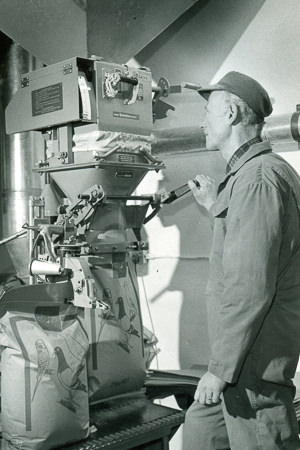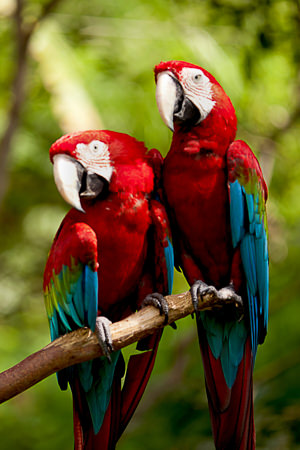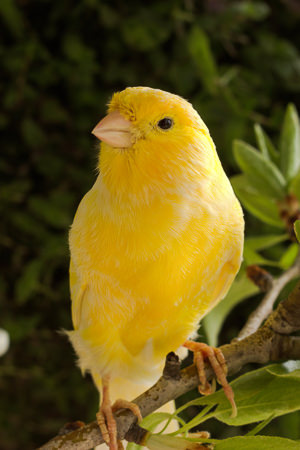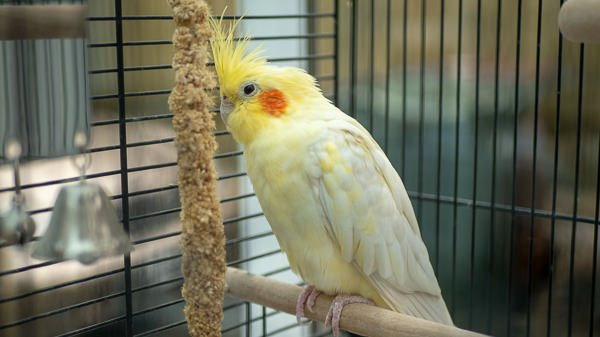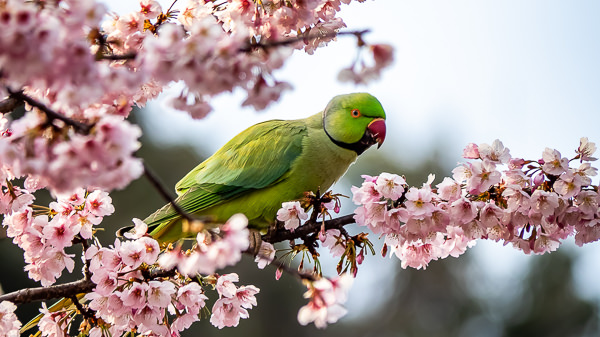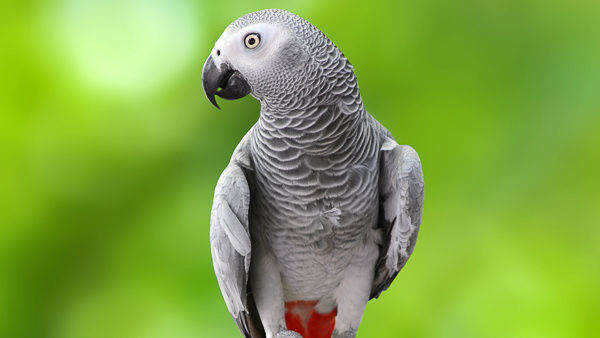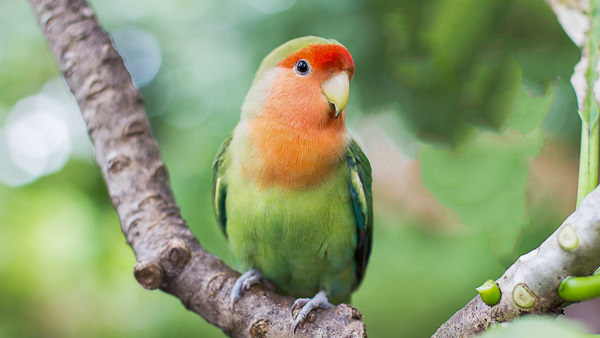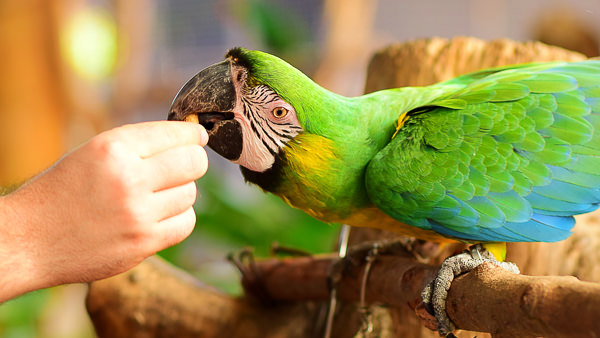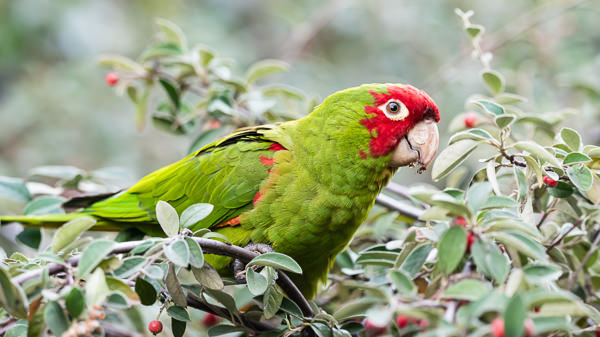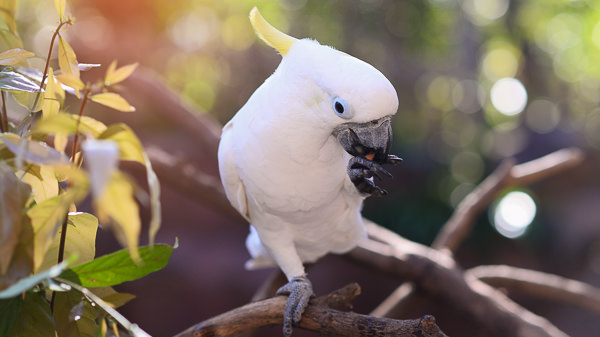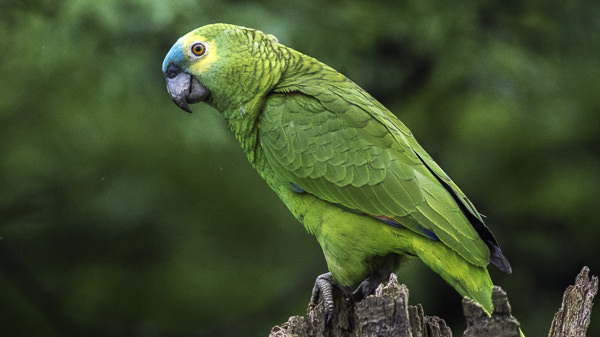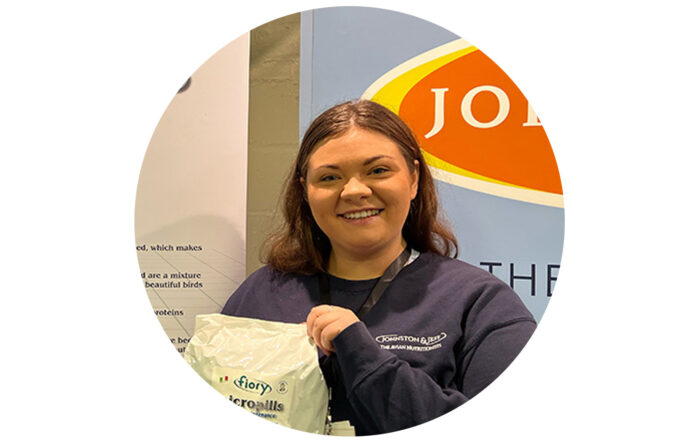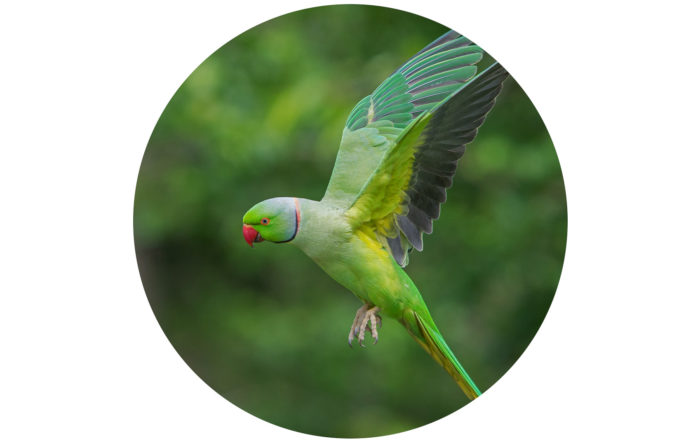What do Parrots Eat? A Comprehensive Guide to Parrot Food and Nutrition
After dogs, cats and rabbits, indoor birds are the UK’s most popular pets. And out of these, parrots, in all their amazing varieties, are often the first choice for people wanting a colourful companion.
It is easy to see why. Parrots are intelligent, engaging, entertaining and affectionate, making them a wonderful addition to your home. They are relatively easy to care for, and as long as you regularly engage with them, they will give you decades of fun and friendship.
But sadly malnutrition is the number one cause of illness in parrots. This is because parrots, like many other types of pets, have complex nutritional requirements. Getting the right balance of vitamins, minerals and other essential nutrients isn’t always easy.
So, it is no surprise that ‘what do parrots eat’ and ‘what do Parakeets eat’ are among the most common questions we get asked. This is a good thing because we owe it to our treasured companions to ensure we do get it right.
Symptoms of malnutrition can range from the relatively mild, such as listlessness and feather pulling, to much more severe conditions like cognitive impairment and organ failure. Even if it doesn’t develop to this level, however, a bird that is poorly fed can spend much of its life feeling unwell.
Add to this the fact that some parrots can live for many decades, without a proper diet they could be confined to a lifetime of poor health and misery.
So, as a company committed to ensuring parrots everywhere are properly fed, we’ve put together this feeding guide to help you keep your feathered friends looking and feeling great.
Essential Nutrients to Include
in Your Parrot’s Diet
Parrots, like other birds, have some specific dietary requirements. So, before we get into exactly which parrot foods to feed, let’s take a close look at the nutrients they need.
Vitamin deficiency in parrots is among the top causes of illness. It is generally caused by a lack of fresh fruit and vegetables in the parrot’s diet.
We take a closer look at which foods contain which vitamins later in the article, so for the time being, let’s examine which ones are essential for your parrot’s health, and what happens if your bird doesn’t get enough of them.
Vitamin A: For birds, vitamin A is very important for the growth and repair of tissues, the proper function of the eyes, hearing and bones. Early signs of vitamin A deficiency include scaly feet and faded feathers but left untreated, far worst symptoms can develop. These include difficulty breathing and a lack of mucus being produced around the eyes, throat and nasal passages. A chronic lack of vitamin A can lead to very serious illness, so it is absolutely critical that foods high in this vitamin are regularly fed.
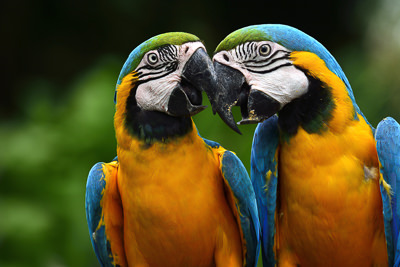
Vitamin B: A lack of B vitamins, particularly B6, B9 and B12, make it very difficult for your parrot to break down food and absorb the nutrients. The presence of B vitamins also enables birds to cope with stress during times such as mating and moulting, which can have a significant knock on effect to overall health.
Vitamin D: Birds require relatively high levels of vitamin D to help them absorb essential minerals such as calcium. Therefore, a lack of this essential nutrient can lead to a number of health problems, including low egg production, soft shells, soft or overgrown beaks, fractures, seizures, spayed legs and bent knees. Like humans, parrots and other birds rely on sunlight to make vitamin D. They secrete oil from their preen gland and while grooming, spread the oil all over their coat. In wild birds, when the oil is exposed to sunlight it reacts to create vitamin D, fulfilling the bird’s needs. However, domesticated birds that are kept indoors don’t get adequate access to sunlight to make sufficient levels of vitamin D so require a dietary supplement.
Calcium: We’ve already talked about the effects of a lack of calcium when we looked at vitamin D, but the story doesn’t end there. Calcium is critical for bone and beak structure, as well as the connective tissue and feather structure. It plays a role in mood too and is linked to anxiety. In short, the need to ensure your bird has sufficient calcium in their diet cannot be underestimated, so this must be taken into consideration when deciding what to feed your pet.
Protein: Protein forms the building blocks of muscles and tissue, meaning a deficiency in your parrot’s diet can lead to reduced muscle tone. This may result in an inability to fly, to carry out other physical activities, and eventually to boredom and depression. The challenge here is that birds require a range of proteins and amino acids to be healthy, and they’re not all available from one source. Another issue is that the most obvious sources of protein are seeds and nuts, and whereas these do form part of a wild parrot’s diet, some can be high in fat, so care is needed when deciding which to feed and in what quantities.
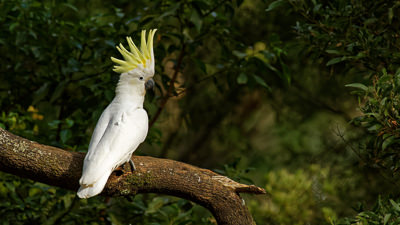
What do Parrots Eat in the Wild?
So, we know that if parrots don’t get all the nutrients they need, their health can soon begin to suffer. This doesn’t just apply to our African Greys, Macaws, Lovebirds, Conures and Cockatiels; the same is true of parrots in the wild. So, how do wild birds ensure they get their full quota of vitamins and minerals?
The key is eating a variety of foods.
There are around 400 species of parrot on the planet, and within that group there is lot of variation in size, colour and behaviour. Their diets vary too and are based on what is available in the environment in which they live. On the whole, however, a wild parrot’s food intake consists of seeds, nut, fruits, vegetables, leafy vegetation, grasses and occasionally insects.
As you can see, it’s an extensive list. It makes sense, therefore, that if we want our birds to live long, healthy, happy lives, we too must feed them the variety of foods that fulfil all their dietary needs.
So, What Type of Parrot Food Should
I Feed to Promote Health?
Lessons from nature teach us that a varied diet is the best for keeping your parrot healthy. So, what foods should you be feeding?
First of all, it is important to feed a high-quality blend as a base for their diet. All of our blends are made of human-grade ingredients and are nutritionally balanced, therefore providing the majority of the nutrition your bird needs for health and vitality. They also go through Our Unique Cleaning Process.
However, ensure you choose something that is specific to the type of parrot you own. If you own a Cockatiel, make sure you choose Cockatiel food. If you have a Parakeet, choose Parakeet food, or African Grey parrot food if you have an African Grey. You get the picture.
For a full breakdown of which blends to feed to which species, check out our feeding guide.
Then, to ensure your parrot is getting the full spectrum of nutrition it requires, add to the blend with a range of tasty fresh treats, including:
Fresh Leafy Greens
Leafy greens, including spinach, kale, dandelion and mustard greens, Swiss chard, and romaine lettuce are rich in omega 3 fatty acids which are needed to help keep your parrot’s skin and feathers in tip-top condition.
Romaine lettuce is actually a bit of a parrot super-food. It contains significant amounts of folic acid; a water-soluble form of vitamin B. It is 17 per cent protein and contains all nine essential amino acids and has far more vitamin A than carrots. So, a leaf or two of romaine lettuce goes along way!
Watercress is also another super parrot food. It’s loaded with vitamin A and K, and birds love the stuff, so make sure you add it to your weekly shopping list!
Vegetables
As well as leafy vegetables, your parrot can eat practically all other vegetables that humans can (except avocado, although this is technically a fruit, not a vegetable!), and they will all provide different nutrients, so it is essential to vary them.
Peppers, broccoli, butternut squash, sweet corn, mushrooms, sweet potatoes, tomatoes and courgettes are all loved by parrots and are great sources of nutrients, particularly Vitamin D, which is essential to supplement.
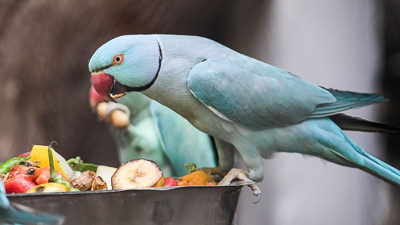
Carrots, chopped up into chunks, are also a great option. Not only do they provide vitamins A and D, the tough chunks give birds a great jaw workout, which helps keep them in good health.
Finally, and perhaps unsurprisingly given where a lot of parrots come from, many Parakeets, Lovebirds, Cockatiels, Macaws and Conures love hot chillies. Feed them sparingly though, because they can become addicted!
Berries
Berries, particularly blueberries, are a great parrot food, packed with health-boosting vitamins for your pet. In particular, they are high in vitamins C and K which boost your bird’s immune system, enabling them to cope with stress better and bounce back from illness quicker.
In fact, any kind of berry that you can eat, your parrot can eat too. However, be careful not to over feed them because as well as being stuffed full of great nutrients, they contain a lot of sugar too, which can be bad for your bird.
Fruits
Parrots love fruit! Whether you have African Greys, Cockatiels, Indian Ring-necked Parakeets, Macaws, Lovebirds or any other of the hundreds of types of parrot, one thing we can guarantee is that they love fruit!
Particularly beneficial fruits include melons, oranges, bananas and grapes, but most parrots will eat practically any fruit you put in front of them. Generally, they are packed with essential vitamins that help keep your feathered friend healthy, as well as fibre, minerals and trace nutrients.
However, as with berries, feed fruit sparingly because they contain a lot of sugar. Also, if you don’t buy organic, it’s best to wash fruit and vegetables thoroughly to get rid of any residues.
Finally, although the flesh of apples is great for your birds, the pips are toxic, so make sure you remove those before feeding.
Beans, Legumes and Sprouts
As we previously discovered, protein is essential for the development of muscle and connective tissue, and a lack of it in the diet can lead to real problems.
So, how do you pack a protein punch in your parrot food? Beans, legumes and sprouts are the answer. Black beans, green beans, kidney beans, lentils, plain tofu and chickpeas are all good sources of protein, and all but kidney beans can be eaten raw.
Sprouting seeds, beans or pulses are also a good source of protein and due to biological changes brought about by sprouting. They also provide plenty of enzymes and vitamins. For more information take a look at our mix, Seed for Soaking.
Seeds and Nuts
What is the first thing you think about when someone says parrot food? Seeds, I would imagine, closely followed by nuts.
That’s right, to the uninitiated, sunflower seeds have been the staple of the parrot diet for decades!
Seeds and nuts certainly have their place and they form a significant part of the wild parrot’s diet. They are a good source of protein and a host of minerals including potassium, magnesium, calcium, zinc and copper.
However, some seeds and nuts are high in fat and overfeeding them can lead to problems.
The best way to avoid this is to feed a high-quality blended base food with the right balance of carbohydrate, protein and fats. This will ensure your parrot gets precisely the right amount of nuts and seeds it requires, but no more.
Then, you only need to supplement your pet’s diet with fresh fruit, veg, and sprouts.
Deciding whether to supplement with seeds and nuts can also be related to lifestyle. It might be appropriate for birds that are particularly active and get a lot of exercise, but less so for those that spend most of their time in an enclosure. For birds that are more sedentary, take a look at our Parrot Lean & Fit blend. Body condition also plays a role. You may feed a healthy sized parrot nuts and seeds as treats, training aids or supplements, whereas this is not advisable for an overweight bird. If you decide to do this, you must take into account the extra calories you’re introducing into your bird’s diet.
Finally, feeding monkey nuts and whole pumpkin seeds can be a useful form of enrichment as the parrot has to break open the shell to get to the treat inside, which will keep the bird engaged and entertained.
Cuttlefish Bone
Finally, to ensure our pets get enough calcium, it is good practice to supplement their diet with cuttlefish bone.
Cuttlefish bone is the internal shell of a cuttlefish and it is made up of around 85 per cent calcium carbonate. It is a great source of calcium and other minerals for your parrot that not only helps keep bones healthy, but also ensures the blood clots properly.
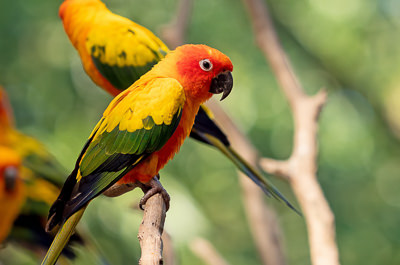
Foods You Should Never Feed Your Parrot
As you can see, there is a long list of nutritious, fresh foods your parrot will love, and will keep him or her in tip-top condition. But there are also some foods that can poison your pet, so should never be fed. Foods to avoid include:
- Alcohol
- Avocado
- Rhubarb
- Tapioca
- Chocolate or cocoa
- Fruit seeds or piths
- Junk foods high in fat, salt and sugar
Feeding any of these foods can result in serious illness or can even be fatal. Care must always be given when feeding fresh fruits not to leave in the seeds, particularly apple seeds, which are toxic. So always ensure you cut fruits up and remove the seeds and pith.
Parrot Food as Enrichment
So, we now know what nutrients our parrots most require and which foods to feed to ensure they get them. But are all of these supplements necessary? Can you not get the same amount of nutrients from a single, formulated parrot pellet?
Well, the answer is yes. In the same way you can get complete dog and cat food, you can get complete parrot pellets too.
However, there are more benefits to supplementing with fruits, veg and other foods than just the nutritional benefits.
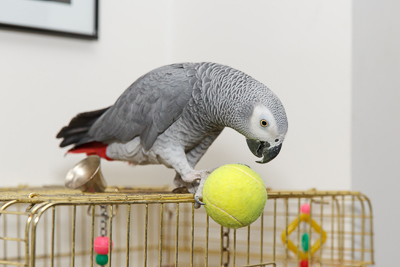
Parrots are intelligent creatures and soon get bored if they are not entertained. Different foods with different colours, textures and tastes provide stimulation and enrichment for your pet when you are not able to engage with them. They can also be used to deliberately create engagement when giving treats or during training.
This is why our parrot foods contain up to 27 separate ingredients before you even consider supplementing.
Another important type of enrichment is foraging. In the wild, parrots often spend several hours a day foraging, so it is a very natural behaviour for them to exhibit. Combining foraging toys with treats – pine nuts are a particular favourite, or pieces of their favourite fruit and veg – can keep parrots engaged and entertained for hours.
Feeding fresh food as a supplement for a formulated parrot food is therefore not only good for your parrot’s physical health, but also for their mental health.
Parrot Feeding Routine
Now we know what to feed and why, the next thing we need to consider is how much and how often.
This is a harder question to answer because all parrots, regardless of species, are individuals and have their own preferences. Some will eat everything put in front of them straight away, others are like young children who push their food around the plate rather than eat it. Some will self-regulate, meaning food can be left out for them all the time, others will continue to eat throughout the day, possibly leading to obesity and other health conditions.
In the wild, birds go out and search for food at daybreak, then spend the rest of the day preening, playing, napping and bathing, before feeding again in the late afternoon and returning to roost.
As a result of this natural behaviour, most people opt to feed their parrots twice a day, once in the morning and once at night, with food as training aids and rewards in between.
Judging exactly how much to feed can come down to observation. Look at how much your parrots eat naturally, which foods they prefer, and keep a close eye on their weight, behaviour and general condition. In short, get to know your parrot!
If the latter are fine, then your feeding routine is likely to suit your pet. If not, you will have to make changes, such as increasing or decreasing the amount of food you offer, ensuring you’re feeding enough variety for the bird to get all essentially nutrients, perhaps even feeding at different times of day.
If this still doesn’t work and your bird’s condition doesn’t improve, it is time to consult an avian vet.
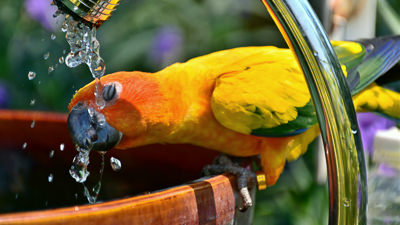
Need for Water
The final link in the chain for ensuring your parrot is properly fed, and therefore increasing their chances of living a long, healthy, happy life, is clean drinking water.
Water is involved in practically all processes in a bird’s body, therefore it is essential to their survival. In fact, parrots should drink around 5 per cent of their body weight in water each day, to replace that lost through waste removal, respiration and evaporation.
It is also essential to replace the water in your parrot’s enclosure every day. If this is not done, your beloved pet may defecate in it, bath in it, drop food into it, and anything else available in its enclosure.
This can create the perfect environment in which bacteria can quickly multiply, potentially causing all manner of illnesses for your feathered friend. Ensuring you provide fresh, clean water every day is essential to keeping your parrot in perfect condition.
Summary
So, now you know the answer to the questions what to parrots eat and what do Parakeets eat, and how to keep your fun, feathered friend happy and healthy over the course of their lifetime.
For more information on high quality, Johnston & Jeff parrot food, click here.
For further information about what parrots eat, feel free to get in touch.
For further information about what parrots eat, feel free to get in touch.
Our Recent Posts Giving Advice and Guidance on Parrots & Parakeets
Ahoy the Mighty Macaws – the Pirate’s Favourite!
Reading Time: 15 minutes Mention the word parrot and the first thing many people think of is a Macaw. Sat abreast many a pirate’s shoulder in books, TV, films and cartoons, these colourful, long-tailed birds are big, beautiful, instantly recognisable as the archetypal parrot, and always happy to take a tasty treat from their owner.
Johnston & Jeff Appointed as Exclusive Distributor of Innovative New Pelleted Bird Food
Reading Time: 6 minutes We are very excited to have been appointed as the exclusive UK distributor for an innovative new pelleted bird feed. Italian manufacturer Fiory has created a cold pressed pellet range called Micropills, suitable for parrots and parakeets, and has signed an exclusive deal with us to sell it in the UK.
Ring-Necked Parakeets – the UK’s Only Wild Species of Parrot
Reading Time: 8 minutes Did you know that the UK has its own population of wild Parakeets? Yes, that’s right, a wild parrot in Britain and one that is growing in population. In this blog, we take a closer look at the fascinating Ring-Necked Parakeet.



